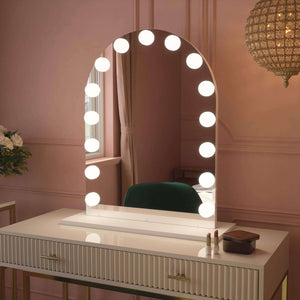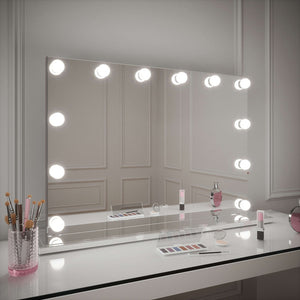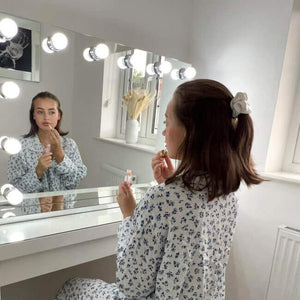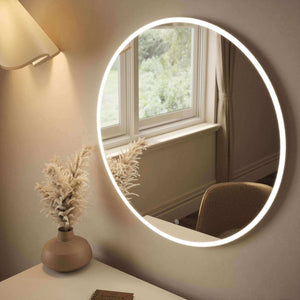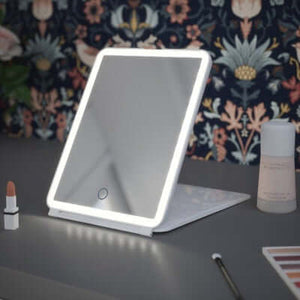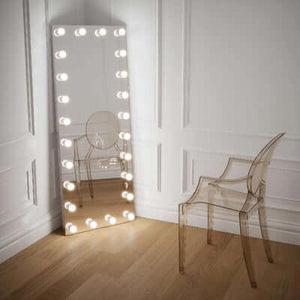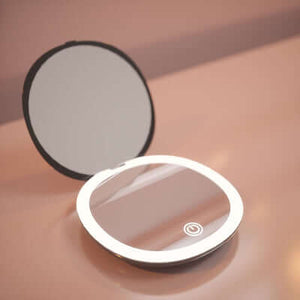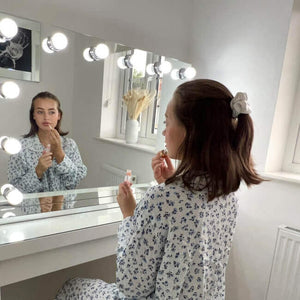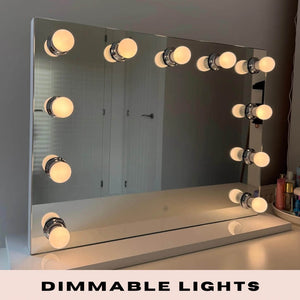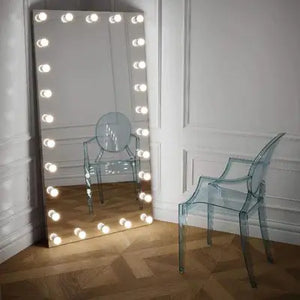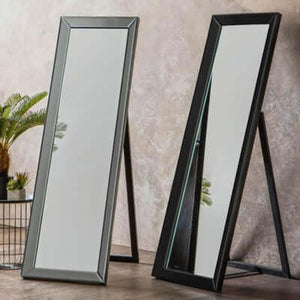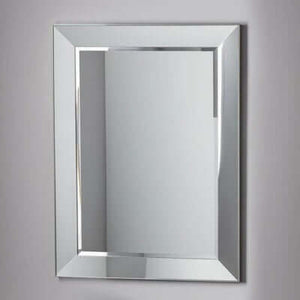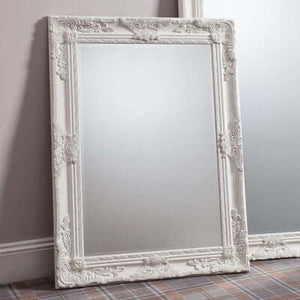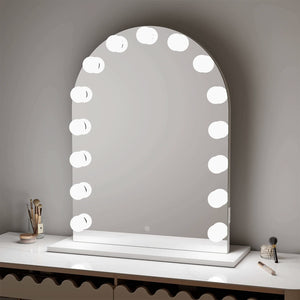Are you experiencing sudden changes in your hair texture during menopause?
You share the experience of having hair that has become thinner and more brittle which once was healthy and full. Menopause triggers multiple physical transformations throughout your body but your hair does not escape these effects.
The good news?
Choose the right hair care products made for menopausal hair problems to bring back your hair's vitality and restore your confidence.
What you'll discover:
-
How Menopause Affects Your Hair
-
Key Ingredients to Look for in Menopause Shampoos
-
Top Types of Shampoos for Menopausal Hair
-
Building a Complete Hair Care Routine
-
Additional Hair Care Tips During Menopause
How Menopause Affects Your Hair
Menopause triggers a massive wave of hormonal changes which significantly affect your hair's condition and its overall look.
Here's what's actually happening:
Menopause triggers significant decreases in estrogen and progesterone hormone levels. The
hormones responsible for hair growth cycles help preserve the thickness and health of your hair.
The sharp decline in hormone levels during menopause can lead to:
-
Hair thinning affects more than 20% of women under fifty yet escalates to approximately 65% during menopause and afterward.
-
Hair becomes more susceptible to damage because oil production in the hair decreases.
-
Hair loses its volume and becomes duller in appearance
-
Slower growth: Hair growth cycles become shorter
Don't panic, though.
Understanding what's happening marks the initial step towards resolving this devastating situation. The fact that hair deterioration impacts approximately 40% of women during menopause means you're not alone in this experience.
Key Ingredients to Look for in Menopause Shampoos
Finding the right premium shampoo for menopausal hair means understanding which ingredients can counteract the specific challenges your hair is facing. During menopause your hair requires special care because not every shampoo provides the same benefits.
These ingredients function as powerful agents that deliver noticeable improvements to hair health.
-
Biotin: Strengthens hair follicles and promotes growth
-
Keratin repairs hair structure damage while increasing its elasticity.
-
Hyaluronic acid works to seal moisture into the hair strands to fight against dryness.
-
Collagen: Improves hair thickness and elasticity
-
Argan oil deeply nourishes hair while enhancing its natural shine.
-
Caffeine drives scalp activity and extends the hair growth period.
Avoid all harsh sulfates, parabens, and silicones when choosing hair care products. These substances remove natural oils from hair that is already fragile which leads to increased dryness and brittleness.
Top Types of Shampoos for Menopausal Hair
With knowledge of beneficial ingredients in hand we can now examine the shampoo options suited for managing menopausal hair issues.
Volumizing Shampoos
When hair thinning becomes your main concern—as it does for many since around 40% of women experience hair loss by age 50—volumizing shampoo can serve as your most effective solution.
These shampoos work by:
-
Each hair strand receives a coating that enhances its thickness appearance.
-
These shampoos build volume by lifting hair from its roots.
-
This formula remains light so it won't make hair appear heavy.
Moisturizing Shampoos
The reduction of oil production during menopause leads to increased dryness in hair. Using a deeply moisturizing shampoo helps reverse the effects of decreased oil production.
The best moisturizing shampoos for menopausal hair:
-
Contain natural oils like argan or jojoba
-
Include hyaluronic acid to lock in moisture
-
Use cleansing agents that maintain natural oils without removing them during hair washing.
Anti-Hair Loss Shampoos
Anti-hair loss products become vital because more than half of women suffer from hair loss after
menopause.
Effective anti-hair loss shampoos typically contain:
-
Minoxidil derivatives that stimulate the scalp
-
Caffeine to extend the hair growth phase
-
Saw palmetto works by blocking DHT which is a hormone connected to hair loss
-
Follicle health benefits from biotin along with additional B vitamins.
How to Build a Complete Hair Care Routine
Selecting the correct shampoo represents only one aspect of building a complete hair care routine. Menopausal hair care requires a complete strategy to achieve the best results.
Pre-Wash Treatments
Start your shower routine by considering pre-wash treatments for better results.
-
Massage your scalp to stimulate follicle blood flow for 5-10 minutes before washing.
-
Use nourishing oils such as rosemary and pumpkin seed oil as treatments for your scalp
-
Weekly use of a gentle scalp scrub helps remove buildup from the scalp.
Although these additional steps may appear to require extra time, they become worthwhile given that 8 million women in the UK suffer from hair loss and can benefit greatly from these preventive actions.
Proper Washing Technique
The way you shampoo holds equal importance to the choice of shampoo you select. Follow these steps for best results:
-
Lukewarm water should be used because hot water removes natural oils from the scalp.
-
Apply shampoo to your scalp using only the amount that fits on a coin to ensure proper application.
-
Massage your scalp in circular patterns instead of scrubbing it roughly
-
To maintain your scalp's natural oils, wash your hair only 2-3 times weekly.
Many women apply shampoo all over their hair which leads to drying out of the ends because they don't require direct shampooing.
Additional Hair Care Tips During Menopause
Your hair care routine contains multiple adjustable elements besides shampoo selection and washing techniques.
Styling With Care
Heat styling accelerates damage to menopausal hair which is already delicate. Consider these gentler alternatives:
-
Keep blow-drying, straightening, and curling to only one or two sessions per week to minimize heat exposure.
-
Before you perform any heat styling apply a thermal protectant to your hair.
-
Choose relaxed updos instead of tight ponytails or buns to prevent stress on your hair follicles
Because almost half of women lose their hair before turning 80 every minor adjustment to decrease damage has a huge positive impact.
Nutrition for Healthier Hair
The food you consume has a direct effect on hair health and this relationship may be stronger now than before. During menopause, these nutrients become particularly important:
-
chicken, fish, and tofu should be included in your diet.
-
Iron functions as an oxygen delivery agent to hair follicles through sources like spinach and lentils as well as fortified cereals.
-
The essential oils required for scalp health come from Omega-3 fatty acids which are found in salmon, walnuts, and flaxseeds.
-
The levels of Vitamin D in the body typically decline during menopause which makes taking supplements essential.
Final Thoughts: Your Path Forward
The data shows that most women experience hair changes during menopause as 65% report hair thinning during this period and beyond.
The right approach combines:
-
Select a shampoo that addresses your individual hair concerns.
-
Appropriate hair washing methods help maintain moisture levels and enhance hair strength.
-
Lifestyle modifications that support your well-being through proper nutrition and stress management techniques
-
Visible improvements require a combination of patience and consistent efforts.
Effective management of hair changes during menopause leads to healthier and vibrant hair when using appropriate products and techniques.
Liquid error (sections/article-template line 192): Invalid form type "41\n", must be one of ["product", "storefront_password", "contact", "customer_login", "create_customer", "recover_customer_password", "reset_customer_password", "guest_login", "currency", "activate_customer_password", "customer_address", "new_comment", "customer", "localization", "cart"]
 Alicia Hollywood Mirror 60cmx80cm
Alicia Hollywood Mirror 60cmx80cm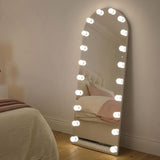 Angelina Full Length Arch Hollywood Mirror 160 x 60cm
Angelina Full Length Arch Hollywood Mirror 160 x 60cm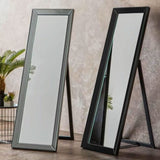 Angled Luna Mirror-Cheval Black
Angled Luna Mirror-Cheval Black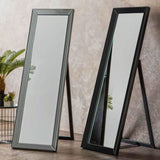 Angled Luna Mirror-Cheval Gray
Angled Luna Mirror-Cheval Gray


